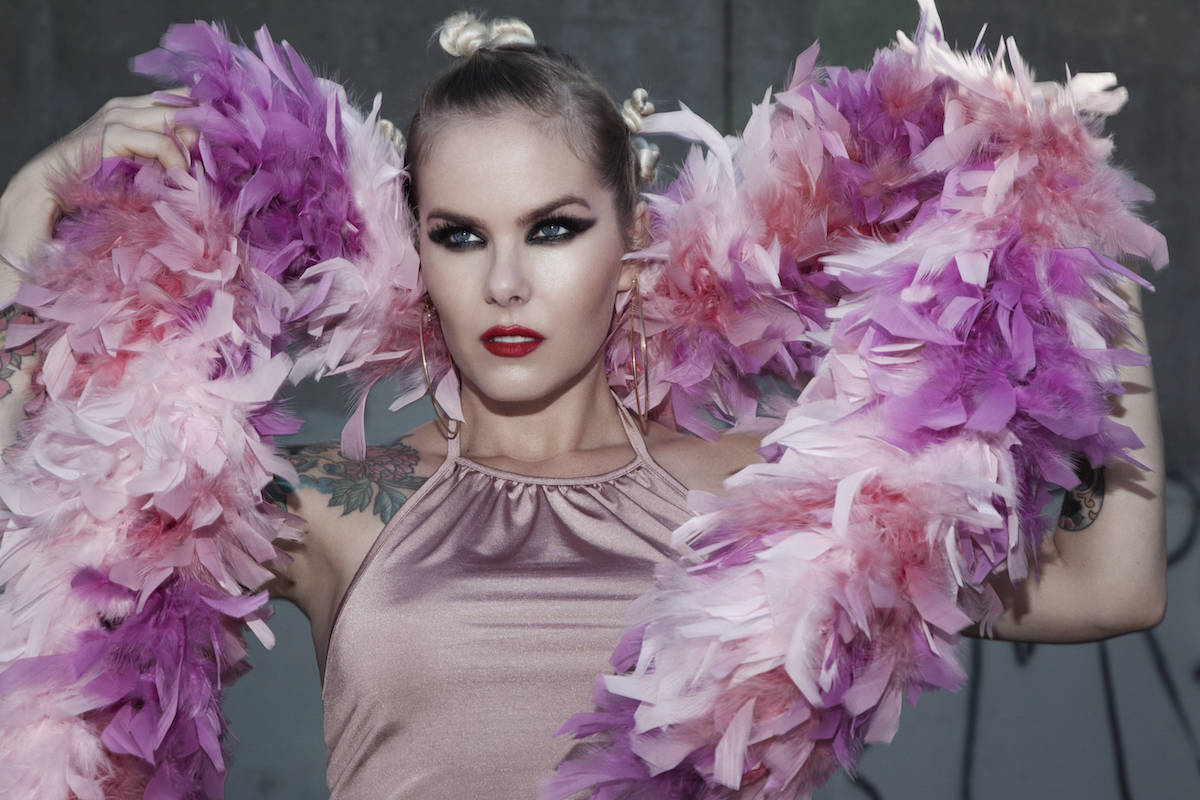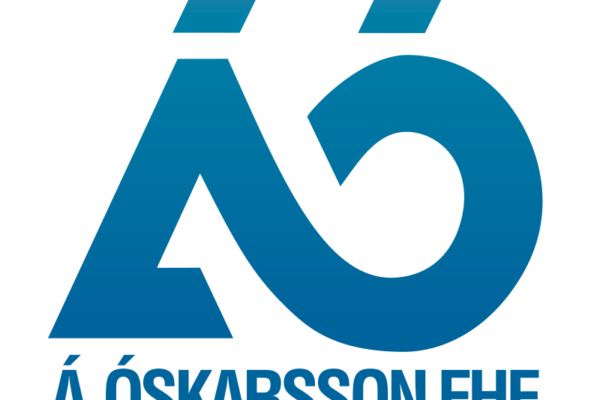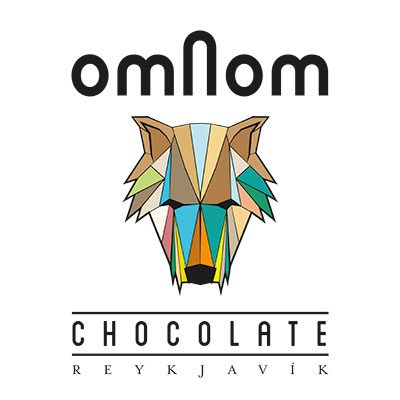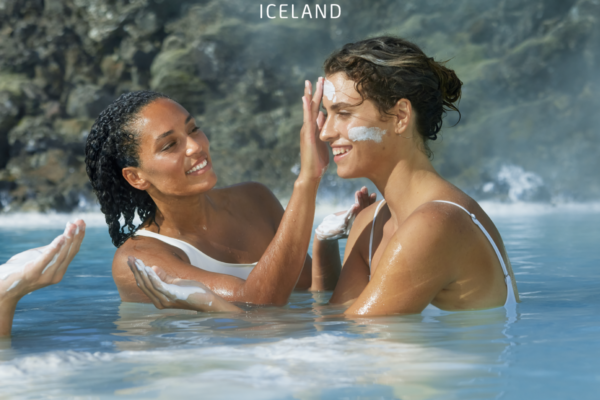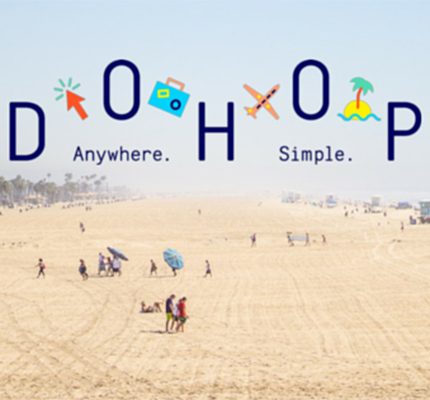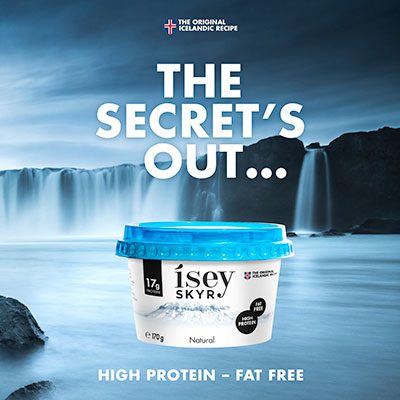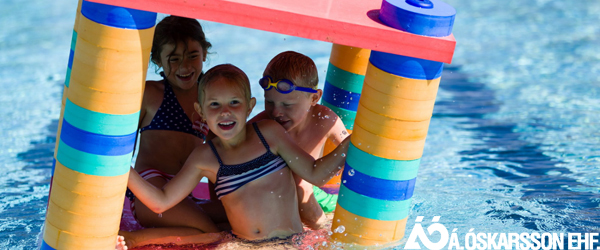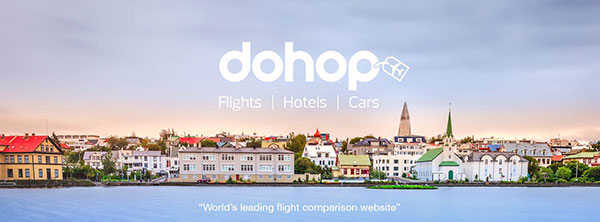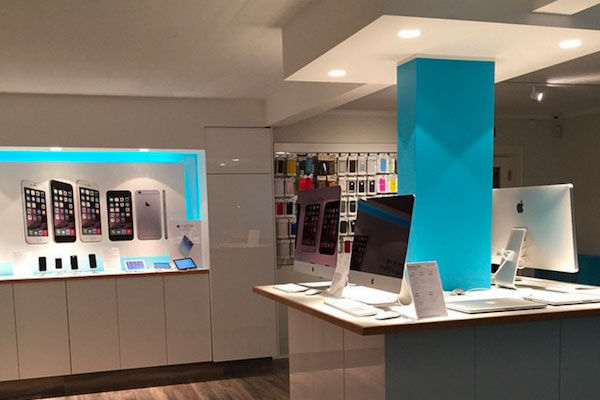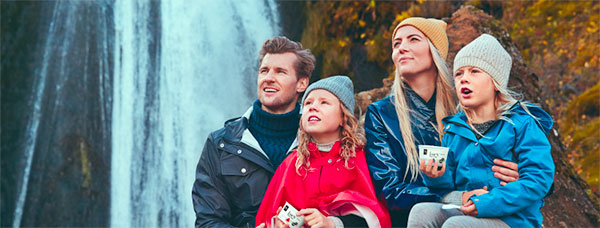And just like that, another winter has come and gone, which means one thing … and no, we’re not talking about summer. We’re talking Eurovision! It’s hard to believe that it’s been almost one year since Greta Salomé nailed it with her performance in Stockholm and now it’s Svala’s turn. Having been performing since the age of seven, she is no stranger to the spotlight. “Lights, camera, action!” has often been the theme of her life and now she’s ready to take on Kiev.
You’ve been in Kiev for the past weeks! How do you feel about that? “I‘m just extremely excited to perform in the semi-final and hopefully I’ll get to the final. I’m competing in the very first semi-final with some very talented singer/songwriters and although I can’t control the outcome, I can control the way I perform. I’m going to sing from my heart and soul and give it my all. Really, that’s all I can do. I want to enjoy every minute of the time I will spend here and meet as many people as possible. It’s amazing, I’ve been making music for so long and toured all over the world, and this is still just as exciting to me.”
“I won’t spoil anything but you can expect a much darker, epic and dramatic performance in Kiev … I could tell your more, but you’ll have to wait and see.”
We’re excited for you! Have the rehearsals been going well? “They have been going well! I flew back to LA a week after winning the national selection in Iceland. Since then, I’ve been working on my stage costume, which is designed and made by two amazing designers in LA. We have also been working a lot on my performance and the new visuals. I‘ve already rehearsed with my backing vocal singers and worked with Stella Rósenkranz, my fantastic choreographer. And finally, now we‘re in Kiev!”
In an earlier interview on GayIceland, your husband Einar Egilsson said you would be taking the act to the next level in Kiev. Tell us about that! Is there more than the clips we’ve already seen? “Yes we will be working with a much bigger stage, which means more cameras, insane lighting and bigger action! I‘m wearing a new costume and the performance will be elevated in terms of lighting, movement, camera angles and visuals. I won’t spoil anything but you can expect a much darker, epic and dramatic performance in Kiev.”
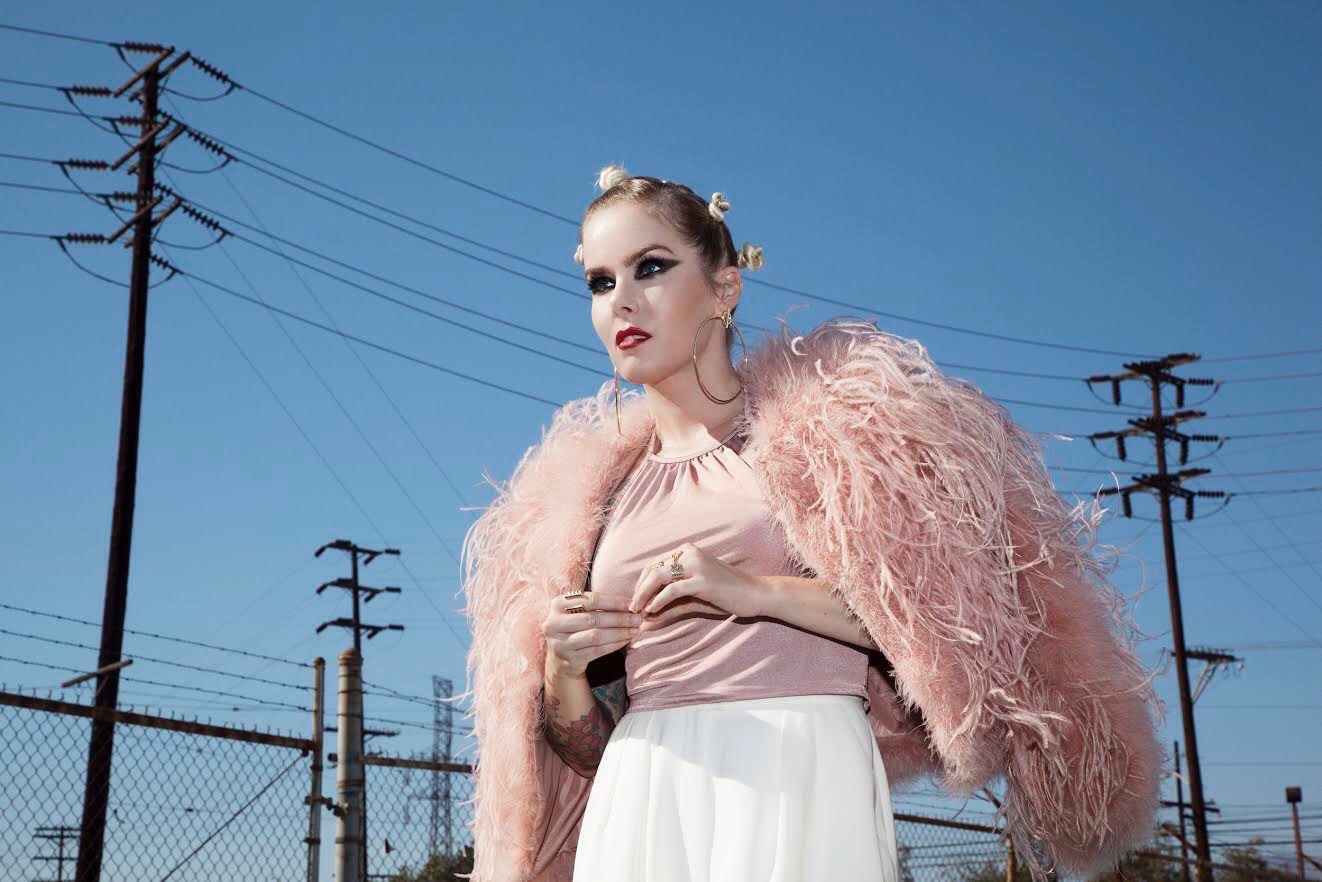
Like any big surprise, we’re sure it’ll be worth the wait! You wrote “Paper”, your qualifying single, with your husband Einar. It’s a very personal song for you, right? “Yes, we wrote “Paper” together with Lester Mendez and Lily Elise in LA a year ago. My song was written from my own personal experiences dealing with different challenges along the way. I’ve been very open about my struggles with anxiety throughout my life. Through all of this, music has always been my salvation and my safe place and I wanted to write about the process of going through these hard times. We all have our own set of struggles and this is what connects us as human beings.
The word “paper” in my song is a metaphor for my emotions. When I wrote the lyrics with Lily, I was describing the internal battles that I have experienced through time. My anxiety makes me fragile and makes me vulnerable like paper. There are so many things you can do to paper: you can cut it, burn it, rip it, glue it together, punch holes into it, crumple it and so on. But you can also make beautiful things out of paper, like draw on it, paint on it, write poetry and stories, write beautiful letters to loved ones, etc. The purpose of this song was to be open and honest about my life, without being ashamed of the trials I’ve been through. By talking about it, we set ourselves free. We face our fears and we don’t give up. That’s what “Paper” is all about.”
You’ve been very transparent about your fight with anxiety as a teenager. Has that affected you as an artist and performer? “Not really. My anxiety has never been connected with performing or making music. The anxiety I experience is a very irrational one and is never connected to anything specific.
“When I started getting panic attacks at 16, I thought I was going insane and didn’t know what was happening to my body. I’d be watching TV and feeling great. Suddenly, I’d be unable to breathe and or talk and felt terrified, thinking I was going to die.”
When I started getting panic attacks at 16, I thought I was going insane and didn’t know what was happening to my body. I’d be watching TV and feeling great. Suddenly, I’d be unable to breathe and or talk and felt terrified, thinking I was going to die. Other times, for example, I’ll be in a store shopping for clothes with a girlfriend on a regular Tuesday and it’ll hit me and the panic attack creeps up on me, becoming full-blown in two minutes. In contrast, when I’m busy touring or recording an album in the studio or writing music, that’s when I feel the most happy and most safe.
I have my own ways of dealing with it. These days I’ve been better with it. I’m learning to handle my anxiety as I get older and become more educated on the topic. While it still happens sometimes, thankfully it only happens once or twice a month. When I talk to my friends and family, it helps me so much and makes me feel less alone.”
By the age of 7, you were already recording vocals on one your father’s (Björgvin Halldórsson) albums. How did that experience shape you today and what was your experience growing up in the limelight? “Yes it’s true, I was singing as a child and then had my first number one hit when I was 11. Back then, my parents wanted me to focus on school. I had to beg my dad to let me record music because he didn’t want me to pursue music at that young age. He also expressed that I would have to do it on my own, without his connections and fame, which I’m thankful for, as it turned me into the independent artist that I’ve become.
As a child, I was surrounded by singers, musicians, actors, producers, directors and artists. My home was always filled with creative types and there was always some kind of music around me. Our home was filled with interesting people and even famous singers like Jerry Lee Lewis and Fats Domino. My dad hosted a lot of legendary singers in Iceland to perform and most of them hung out at our house.
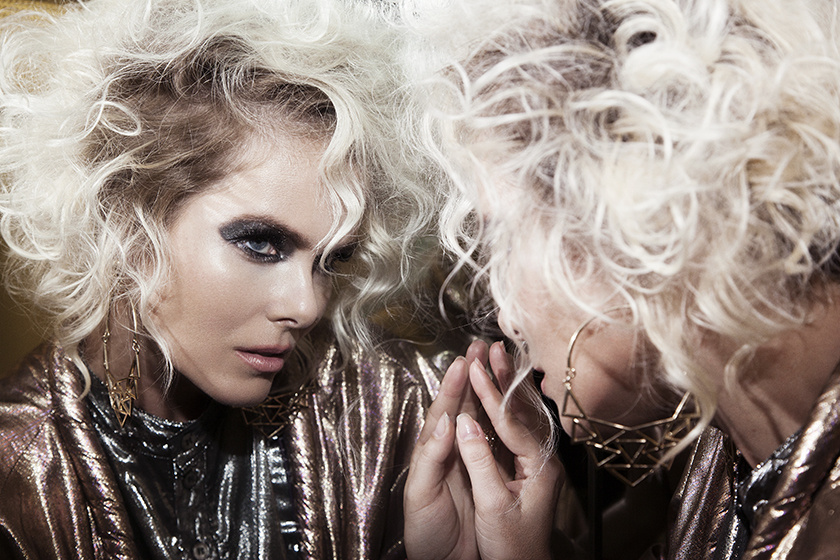
My family was never rich, but we were well-off. Recording artists in Iceland have to become internationally successful to earn a great living because Iceland is such a small country with a very small population. We didn’t live a Hollywood lifestyle, and my parents weren’t materialistic. In fact, I had to work through college and Christmas break to save money and do the things I loved.”
Do you think that gave you advantages? Or was it hard to break free from the child star label of a famous father? “Of course, my dad wanted me to become successful independently and on my own terms. He was always very supportive and gave me good advice, however he never used his connections to make me a star. I think because my dad was famous, people often felt that I had it “easier”, that I didn’t have to work as hard to achieve success. I had to prove myself, which was fine as I knew I had the talent.
At 11, I shed the child star stamp after recording my first number one Christmas single called “Ég hlakka svo til (I’m looking so much forward)”. A few years later, I came out with my band Scope and had my second number one single, something that happened on my own terms, with music I made with my friends. Since then, I’ve never looked back and have been writing and recording music ever since.
My dad didn’t make me a star; I’ve been making music independently since I was 11. Although we have collaborated on numerous projects, I never had to lean on him to pave my success. Surely, it’s amazing to have a father who’s experienced in the music industry: he gives the best advice and gives me endless amounts of support.”
“I think because my dad was famous, people often felt that I had it “easier”, that I didn’t have to work as hard to achieve success. I had to prove myself, which was fine as I knew I had the talent.”
As Svala continues speaking, one thing remains crystal clear: she chose her own adventure and worked for every bit of her success. In a time era that feels over saturated with bands and singers, it’s often difficult to push through the noise and have your voice heard. For Svala, her trendsetting look and captivating sound is part of a vision she has long dreamed of.
When you were a kid, were you set on pursuing a career in music? “Ballet was actually my true passion. I started dancing when I was 8 years old and then got into the National Theatre Ballet when I was 9 years old. During my audition, there were 300 hundred girls, only 22 would make it through. I remember I looked younger than everyone else, and had long hair that went down to my hips. I think I was really nervous when I saw all the other girls stretching and wearing tutus! In the end, I was selected. I was in ballet for 6 years in the National Theatre (or Þjóðleikhúsið, as it’s called in Icelandic). I lived for dancing and wanted to be a prima ballerina and live in NYC. Unfortunately, some injuries held me back and music eventually became my prime focus. My mom was so upset when I stopped ballet, as her dream was to see me dancing on stage in New York. But now she will see me on Eurovision, which is still very cool!”
We think you made the right choice! Which artists did you look up to while growing up? “Growing up, my idols were Ragga Gísla, Björk, Prince, Michael Jackson and Whitney Houston. I’m also a huge fan of Beyonce, Rihanna, Grace Jones, Bowie, Annie Lennox and Stevie Wonder.”
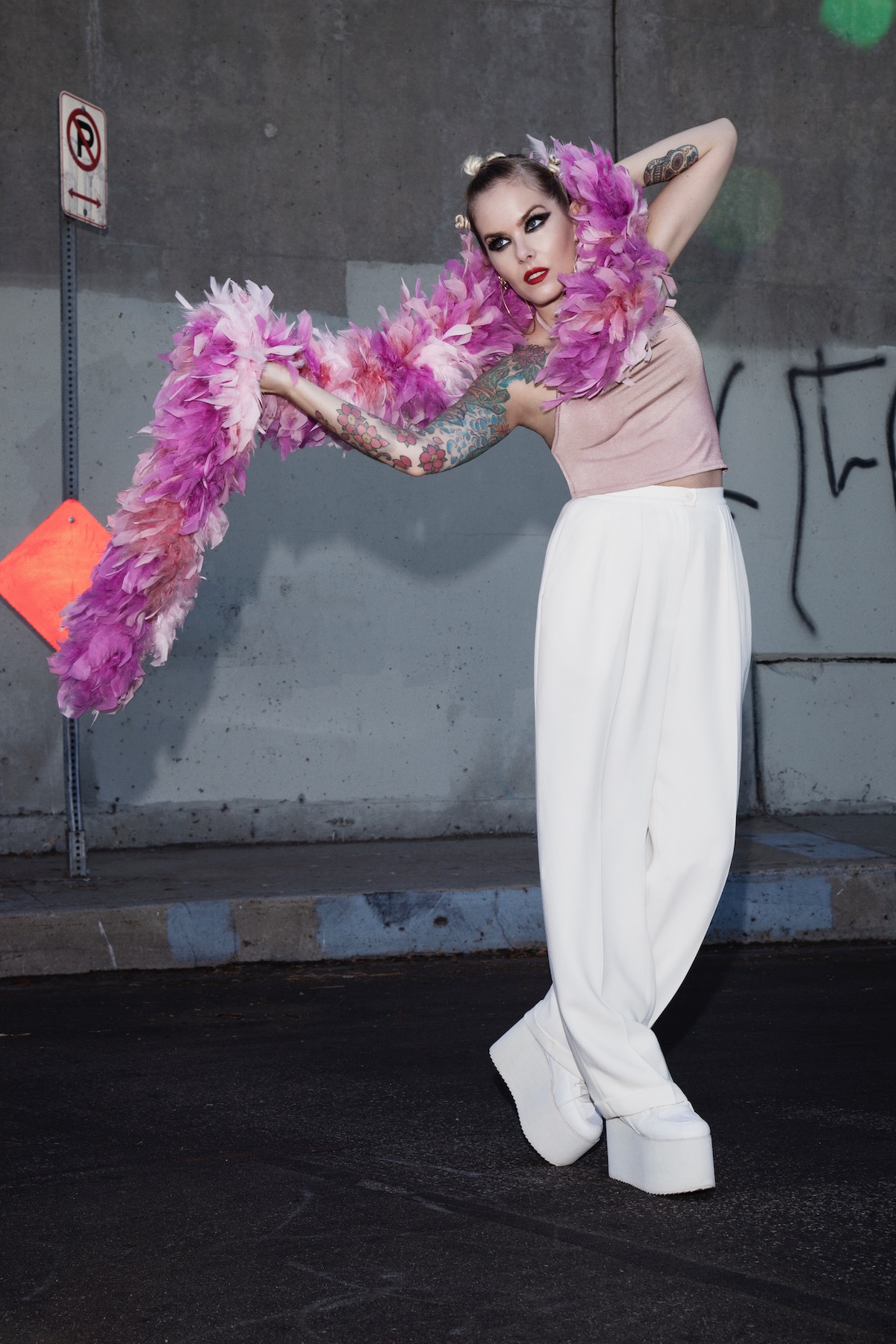
You went on to play with various bands in Iceland. Looking back at all the material you created, there’s a huge variety of sounds and genres that have brought you to where you are now. Is it safe to say that you’re a bit of a musical chameleon?
“Well, I’ve only been in three bands! The first one was Scope, which was electronic music, then I joined Bubbleflies for a brief period and we played funk and electric-soul. Lastly, I formed Steed Lord in 2006 which was strictly electronic music. Truthfully, I feel that the music in those bands are not that different. I released two solo albums in 2001 and 2005 that were R&B and pop, but I don’t feel like there’s much of a disconnect musically. I love a lot of different kinds of genres but I don’t think I could ever make, say, a rock music or punk music, for example. Not that I don’t like that kind of music, but I’m more of a electronic, pop, R&B/soul kind of artist.
But I will admit from 1999 to 2005, I was searching within myself and I didn’t really know what kind of sound I wanted to commit to. But as soon as I formed Steed Lord in 2006, I found my true sound and have been 100 percent true to myself since then.”
In Steed Lord, your outfits are very colourful and imaginative. The costumes and theatrics are brilliant! Are those elements important to you as an artist? “Well in Steed Lord I created an alter ego called “KALI” and she is extremely theatrical, dramatic and playful. It’s a side to me that I love to channel. I also like to express myself through fashion, which is why I have my own clothing line called “KALI”.
“Ballet was actually my true passion … Unfortunately, some injuries held me back and music eventually became my prime focus. My mom was so upset when I stopped ballet, as her dream was to see me dancing on stage in New York. But now she will see me on Eurovision, which is still very cool!”
Although I’m not a fashion designer, I’m a singer with a vision to express myself in another form of art. I don’t take fashion too seriously though. I like to have fun with it and play dress up. I’ve collected designer vintage clothes for the past thirteen years and I have a massive collection! I love to sew costumes and clothes for my shows. I’m generally a very creative person, and I love the way that fashion and music work together!”
Can you please give us any clues about your upcoming performance at Eurovision 2017? “You can expect something dark, with a lot of energy. I could tell your more, but you’ll have to wait and see.”
Svala is only hours from the big night. While managing her busy schedule leading up to the performance, it’s no secret that she’s used to this: Svala was born to entertain. From a child star, to a band front woman, to a solo artist, her evolution as a creator is more apparent than ever before. With a clothing line under her belt, along with an international following, Svala is set for a breakthrough year. But tonight she’ll be carrying her father’s legacy in hopes of winning it all for Iceland – and she’ll be doing it on her own terms.

